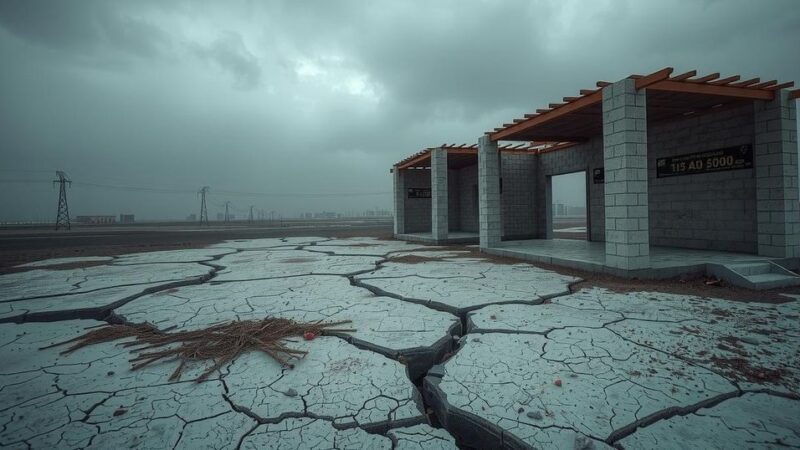Hezbollah supporters protested in Beirut after Lebanese authorities blocked an Iranian Mahan Air flight from landing. The decision left passengers stranded and sparked unrest, leading to clashes with security forces. The incident raises questions about Iran’s influence in Lebanon and the political motivations behind restricting the flight.
On Thursday, Beirut experienced significant unrest as Hezbollah supporters blocked access to Rafic Hariri International Airport. This action followed the Lebanese authorities’ decision to prevent an Iranian Mahan Air flight from landing in the city. Protesters, waving Hezbollah flags and images of their leaders, set tires ablaze and voiced their discontent through chants against the restriction imposed.
The denied flight, which was supposed to travel from Tehran to Beirut on February 14, was officially prohibited from landing by Lebanon’s Directorate General of Civil Aviation. A Lebanese airport official confirmed that the airport had been instructed to inform Mahan Air of the cancellation of two scheduled flights on Thursday and Friday, citing no specific reason for this decision.
Passengers scheduled to travel on the canceled flights found themselves stranded at both Tehran’s Imam Khomeini International Airport and Beirut’s Rafic Hariri Airport, leading to considerable frustration among them. Following this announcement, Hezbollah’s supporters took to the streets in large numbers, obstructing roads leading to the airport and demonstrating against the government’s decision.
Videos circulating on social media captured the protests, depicting demonstrators igniting tires, displaying Hezbollah flags, and chanting against the flight ban. Some protesters were also seen showing images of former Hezbollah leader Hassan Nasrallah, who was killed in an airstrike last year. The Lebanese Army intervened to manage the situation, aiming to restore order amidst rising tensions.
Clashes between the protesters and security forces occurred as efforts were made to clear blocked roads and ensure airport operations resumed. The cancellation of the Mahan Air flights has generated considerable debate in Lebanon, with Hezbollah and its allies labeling the decision as politically motivated. Lebanese lawmaker Ibrahim Mousawi denounced it as an infringement on Lebanese sovereignty.
Hezbollah has persistently refuted claims that it utilizes Beirut’s airport for arms and financial exchanges. In light of growing concerns, Lebanese officials have purportedly escalated checks at the airport, particularly regarding Iranian flights. The Lebanese government has, however, remained largely silent regarding the incident, failing to provide an official clarification about the obstruction of Mahan Air flights.
As Hezbollah supporters demand accountability from the government and an immediate overturn of the decision, the incident highlights the complexities of Iran’s involvement in the Middle East. Iran’s continued support for militias like Hezbollah is seen as an effort to amplify its regional influence, which risks deepening the existing political divisions within Lebanon. Observers warn that such actions may incite further unrest and destabilize the region as tensions mount.
In conclusion, the protest by Hezbollah supporters against the Lebanese authorities’ cancellation of Mahan Air flights illustrates the complexities of regional tensions involving Iran and its proxies. The protests culminated in road blocks and clashes with security forces, revealing deep frustrations among supporters over the perceived political motives behind the flight bans. This incident not only emphasizes the ongoing influence of Iran in Lebanon but also the potential for further instability in the region as tensions escalate.
Original Source: www.ncr-iran.org






